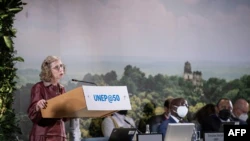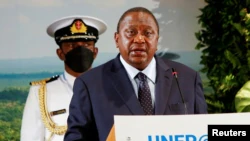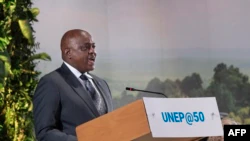Thursday marked the 50th anniversary of the United Nations Environment Program (UNEP), at its headquarters in Nairobi. Activists have complained that the UNEP is slow to address global threats to our environment, such as climate change or pollution. However, the U.N. Environment Assembly this Week saw over 100 nations pledge to negotiate a binding agreement to reduce plastic pollution.
Inger Andersen is UNEP’s chief. She stated Thursday that UNEP has helped save the planet from destruction and damage.

We saved millions of people’s lives and protected nature,” she stated. “We showed environmental multilateralism does deliver. This is a lesson we should all learn from. Friends, there have been other significant achievements such as the launch of the IPCC scientific body, the phase out of lead and petrol, and, just yesterday, a resolution that started the pathway to a global plastic pollution deal to end plastic waste for good.
The resolution calls for two-year negotiations to reach an international treaty that addresses the growing problem of plastic trash.
The UNEP was founded in Stockholm in 1972. Since then, it has been a key player in the protection of wildlife and plants around the world.
According to the organization, its mission is to unite the world in fighting environmental threats.

Uhuru Kenyatta, Kenya’s president, addressed leaders, delegates, and environmental activists at UNEP Headquarters in Nairobi.
Over the last 50 years UNEP has helped the world to better understand the role of the environment in human life. He said that they have also helped us to mobilize global action to protect the environment.
Wanjira Mathai is the vice-president of the World Resources Institute and the regional director. She said that it has been difficult to enforce agreed-upon environmental laws and policies.
Enforcement is our biggest challenge, because we make promises but don’t always keep them. He said that this is the greatest opportunity for us to see them through.

Mokgweetsi Masisi, President of Botswana, says that implementing environmental laws and the agreement require more funding.
Botswana continues to follow the multilateral environmental agreements she is a part of. He said that despite the fact that there are limited resources, it is still difficult to fulfill these commitments.
Andersen stated that her organization needs the support from all countries in order to achieve and deliver a stable environment and rich nature that benefits everyone.

